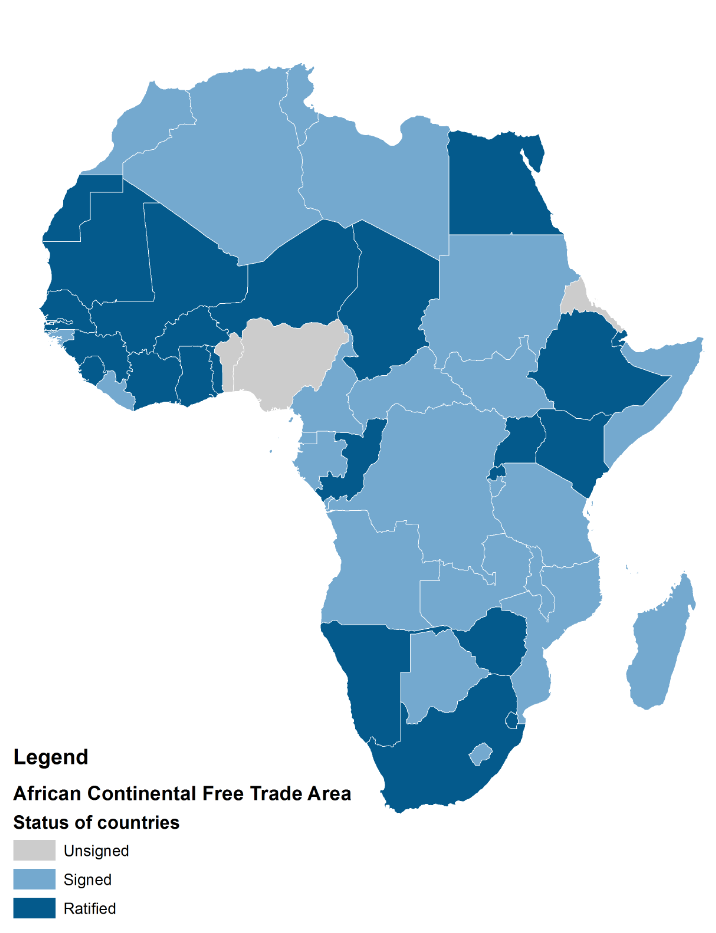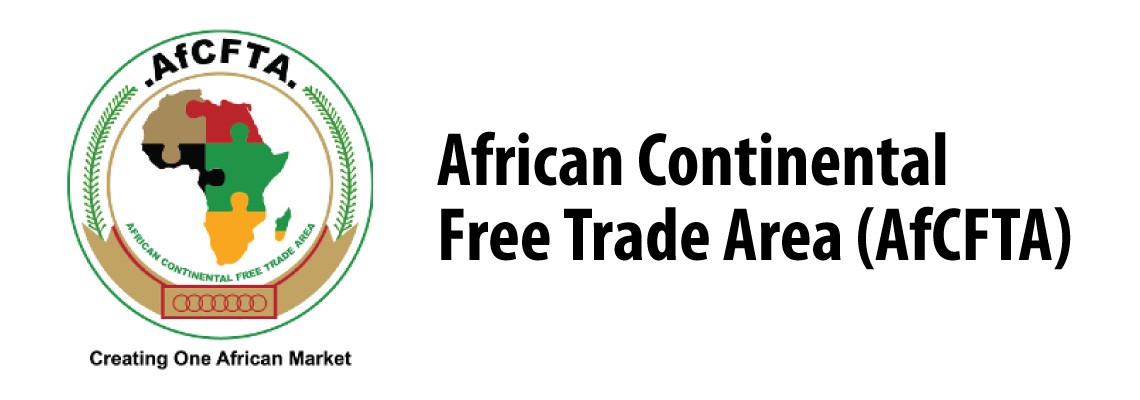Introduction: Pioneering Economic Integration for Sustainable Growth
In today’s increasingly interconnected world, regional economic integration holds immense potential for growth and prosperity. The African Free Trade Agreement (AfCFTA), signed in 2018 and officially launched in 2021, is a testament to this power. As the world’s largest free trade area, encompassing 54 countries and over 1.3 billion people, the AfCFTA holds the promise of a transformed African continent.

Image: www.brookings.edu
This groundbreaking agreement aims to create a single market that will facilitate the free movement of goods, services, and people across borders, significantly boosting intra-African trade and investment. With the vast potential to unlock economic growth, reduce poverty, and improve the lives of millions of Africans, the AfCFTA marks a pivotal moment in the continent’s history.
Understanding the AfCFTA: A Framework for Continental Cooperation
Definition:
The AfCFTA is a comprehensive agreement that seeks to establish a single market in Africa by eliminating tariffs and other trade barriers within the continent. It aims to create a seamless economic space that will foster economic integration and cooperation among member states.
Background:
The idea of an African free trade zone has been a long-standing aspiration on the continent. Negotiations for the AfCFTA commenced in 2015 as part of the African Union’s Agenda 2063, which envisions a prosperous and integrated Africa. After several years of consultations and negotiations, the agreement was signed in Kigali, Rwanda, in March 2018.

Image: www.eac.int
Significance:
The AfCFTA is a transformative initiative that will reshape economic relations within Africa. It has the potential to boost intra-African trade by 52%, unlocking significant economic growth and sustainable development opportunities.
Scope and Implementation of the AfCFTA
The AfCFTA covers a wide range of areas, including trade in goods and services, intellectual property rights, competition policy, investment, and dispute resolution. The agreement aims to create a level playing field for businesses, allowing them to operate across borders with greater ease and efficiency.
The implementation of the AfCFTA is a gradual process that involves several phases. The first phase, launched in 2021, focused on reducing tariffs and other trade barriers on goods. Subsequent phases will address other aspects of the agreement, such as trade in services, investment promotion, and the establishment of a continental payments and settlement system.
Benefits and Opportunities of the AfCFTA
The AfCFTA holds immense promise for the economic growth and development of Africa. Its numerous benefits include:
- Increased trade and economic activity
- Enhanced competitiveness of African businesses
- Improved access to larger markets
- Increased foreign direct investment
- Job creation and improved livelihoods
- Reduced poverty and inequality
- Strengthened regional cooperation and integration
Recent Developments and Future Prospects
Since its launch, the AfCFTA has made significant progress. Several countries have ratified the agreement, and the Secretariat of the AfCFTA has been established in Accra, Ghana. The African Continental Free Trade Area (AfCFTA) Clearing House has also been established to facilitate payments and settlement of cross-border transactions.
Looking ahead, the successful implementation of the AfCFTA will require strong political will and commitment from member states. The establishment of efficient and effective infrastructure, such as transportation, communication, and energy, will also be critical. Additionally, addressing non-tariff barriers, such as regulatory differences and inefficient customs procedures, will be essential for realizing the full benefits of the agreement.
Africa Free Trade Agreement Explained News
Conclusion: A Call to Action
The African Free Trade Agreement is a transformative initiative that has the potential to unlock the continent’s economic potential and transform the lives of millions. By embracing the opportunities offered by the AfCFTA, African countries can foster economic growth, reduce poverty, and create a more prosperous and sustainable future for the continent. As we move forward, let us all work together to ensure the successful implementation of the AfCFTA. Together, we can build an Africa that is economically integrated, globally competitive, and united in purpose.
Would you like to know more about the AfCFTA?






